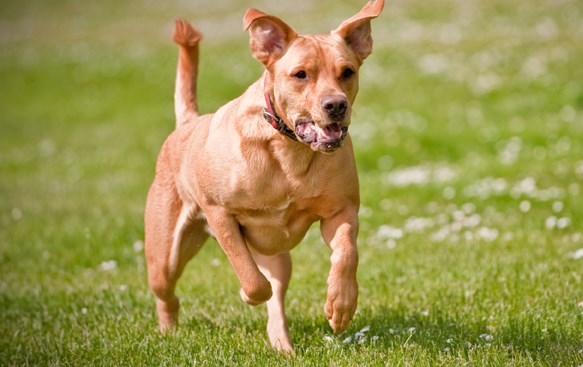In my last column I discussed how growling is a form of communication from a dog, rather than a sign of aggression.
A dog that growls is trying to communicate a message of discomfort. That discomfort could be due to injury or illness. It could be due to a past negative or abusive experience. It could be due to the dog having its personal space invaded, or a dog may be guarding a valued item such as a toy, a bone or a piece of stolen laundry.
The growling could also be caused by a dog being asked to do more than it is emotionally, mentally and even physically able to do, such as watching fireworks, going to a busy dog park, moving to a new home or going camping for the first time. All of these events can cause a dog stress, especially if it has not been exposed to them as a puppy and socialized to these situations. The accumulated stress can cause a dog to growl as it feels the need to protect itself.
Growling is not something that should be ignored nor punished and it is best to find out what is causing your dog’s discomfort so that the dog no longer feels threatened.
Remember that growling is communication and if you punish the communication and a dog stops, then its next recourse would be to bite to express its discomfort. Stopping the growling does not make the reason a dog is growling go away, it just stops a valuable tool of communication.
The help of a qualified trainer is essential to correct the issue and prevent it from escalating to a bite. A trainer can gently expose your dog to the stressful situation while rewarding confident calm behaviour. A trainer has the experienced eye to recognize the slight changes in your dog’s behaviour that dog owners miss: both the slight yet significant negative changes that show the increase of stress and the subtle positive changes that signify the decrease of stress. Timing is everything and if you get it wrong the situation will not improve and may get worse.
One thing a dog owner can do to help their dog is to find ways to boost its self-confidence and the best way to do this is through dog sports.
I have spoken about dog sports in the past and encourage dog owners to participate in them to improve their relationship with their dog because they work!
Dog sports give a dog a purpose, a job, an activity that is fun and rewarding. Ask anyone who has taken a tracking course with their dog and they will tell you that when the dog sees their tracking harness being picked up their eyes light up and they can’t contain their enthusiasm. My tracking students are always telling me how their dogs seem to know the days of the week and that on Saturday and Sunday mornings they can find their dogs sitting by the front door, beside their tracking gear, patiently waiting to go and track. I just love that!
Tracking isn’t the only sport to boost a dogs confidence, but I personally think it is the best. Other dog sports are “nose work” courses where a dog is taught to locate hidden scents. It is much like tracking in the sense that a dog is using its most powerful tool to find things, but it has the advantage of being done indoors where tracking is always done outdoors.
There are breed specific activities such as Field Trials, Hunt Tests and Retriever trials for the sporting/hunting breeds.
Other dog sports are dock diving, lure coursing, agility, herding and Rally-O obedience. These are all physically challenging activities that all have the ability to boost a dog’s confidence. Dogs are rewarded for the smallest efforts and that makes them feel good about themselves and that is where the confidence is raised. Just like us! When we are praised for a job well done, we feel good about ourselves and take pride in our success.
There is a spot in a dog sport class just waiting for you and your dogs participation. Give it a try, neither you nor your dog will be disappointed.
Joan Klucha has been working with dogs for more than 15 years in obedience, tracking and behavioural rehabilitation. [email protected].



